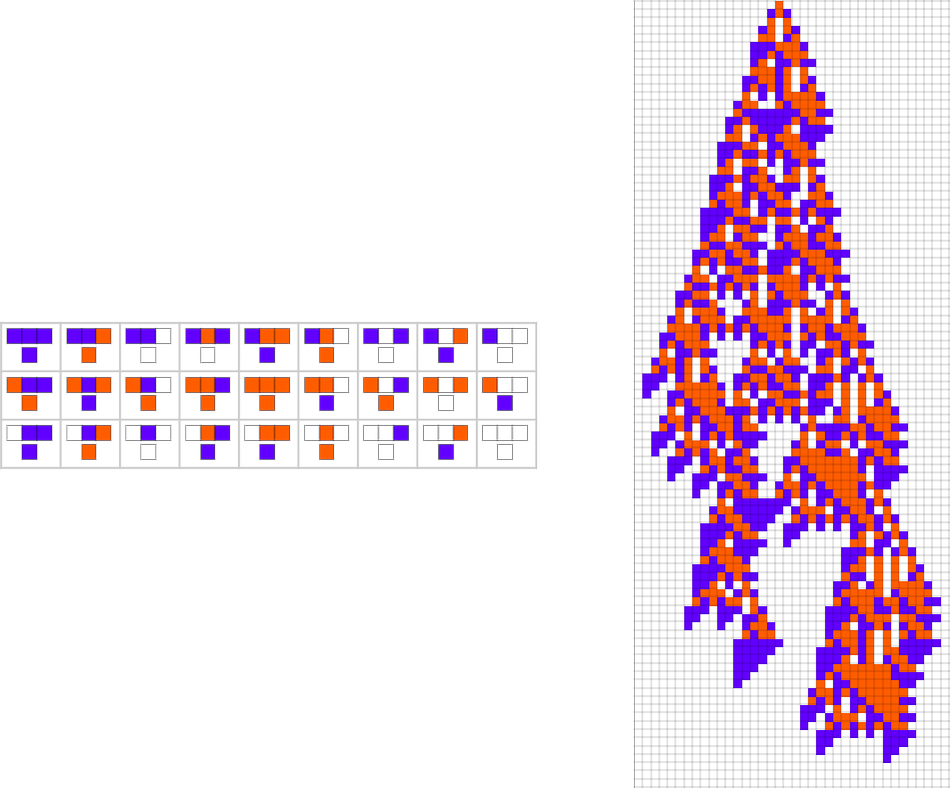“Logic, Explainability and the Future of Understanding” (2018) »
“The Physicalization of Metamathematics and Its Implications for the Foundations of Mathematics” (2022) »
“Computational Knowledge and the Future of Pure Mathematics” (2014) »
The Simplest Axiom for Logic
Theorem (Wolfram with Mathematica, 2000):
The single axiom ((a•b)•c)•(a•((a•c)•a))c is a complete axiom system for Boolean algebra (and is the simplest possible)
For more than a century people had wondered how simple the axioms of logic (Boolean algebra) could be. On January 29, 2000, I found the answer—and made the surprising discovery that they could be about twice as simple as anyone knew. (I also showed that what I found was the simplest possible.)
It was an interesting result—that gave new intuition about just how simple the foundations of things can be, and for example helped inspire my efforts to find a simple underlying theory of physics.
But how did I get the result? Well, I used automated theorem proving (specifically, what’s now FindEquationalProof in Wolfram Language). Automated theorem proving is something that’s been around since at least the 1950s, and its core methods haven’t changed in a long time. But in the rare cases it’s been used in mathematics it’s typically been to confirm things that were already believed to be true. And in fact, to my knowledge, my Boolean algebra axiom is actually the only truly unexpected result that’s ever been found for the first time using automated theorem proving. Continue reading









